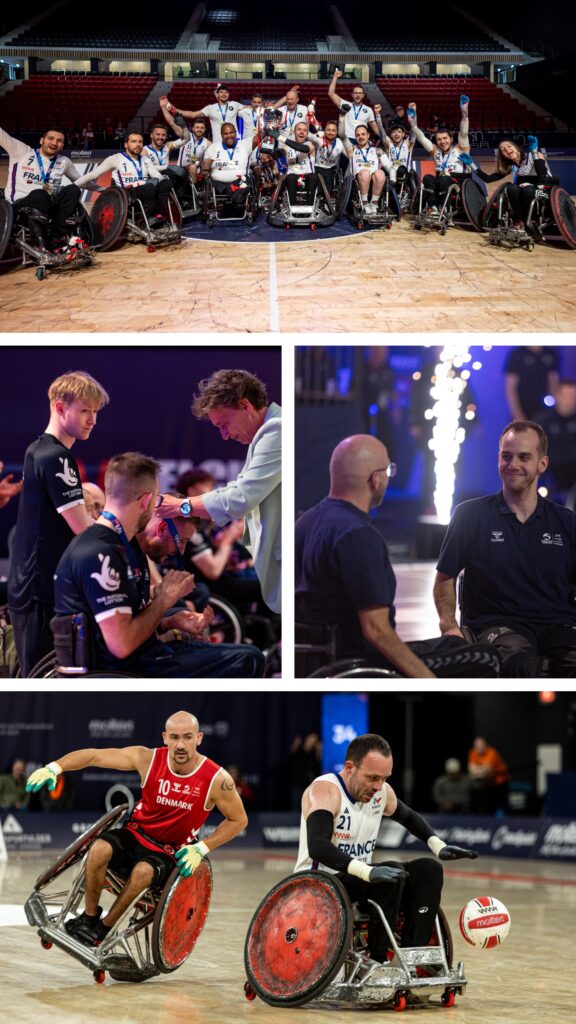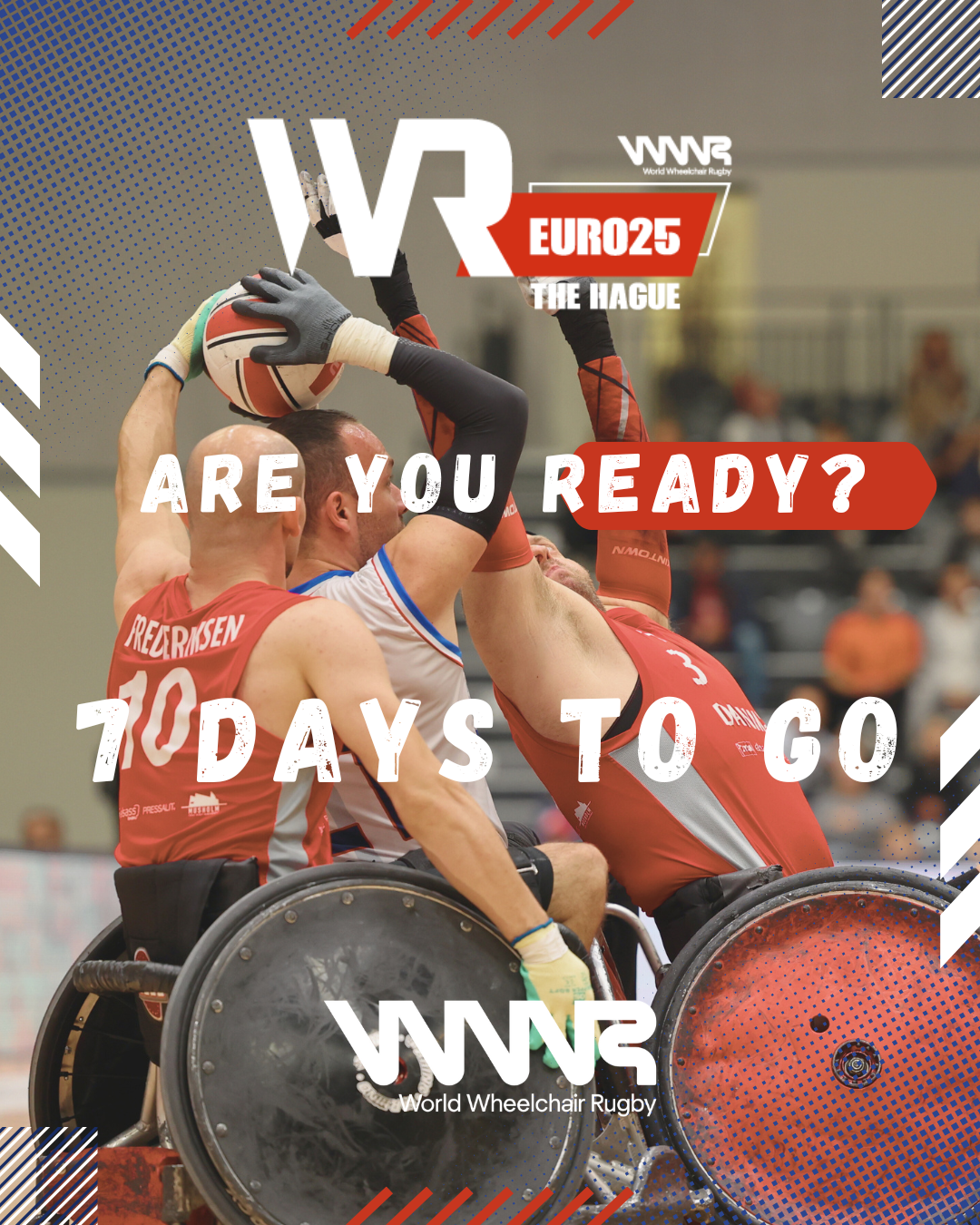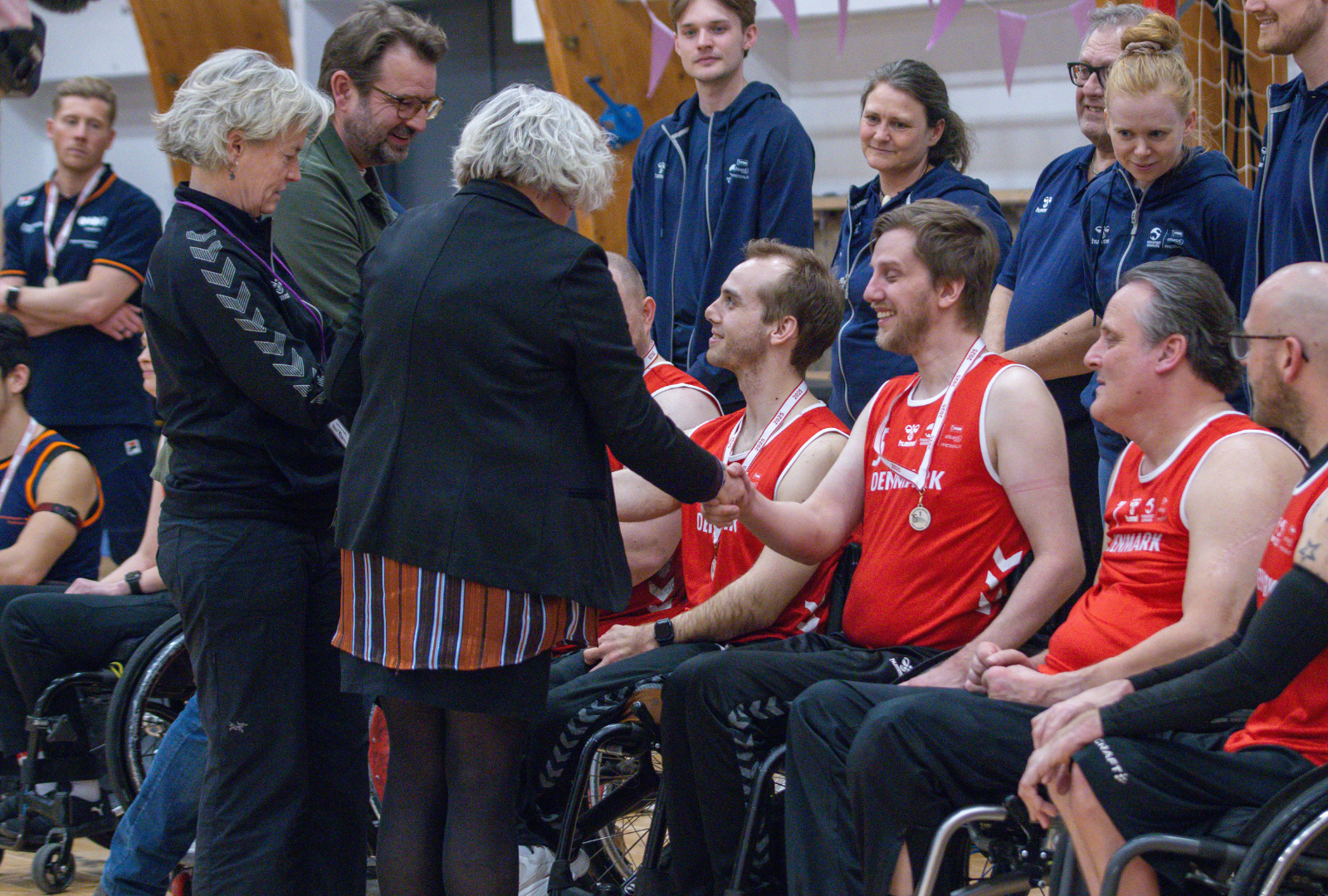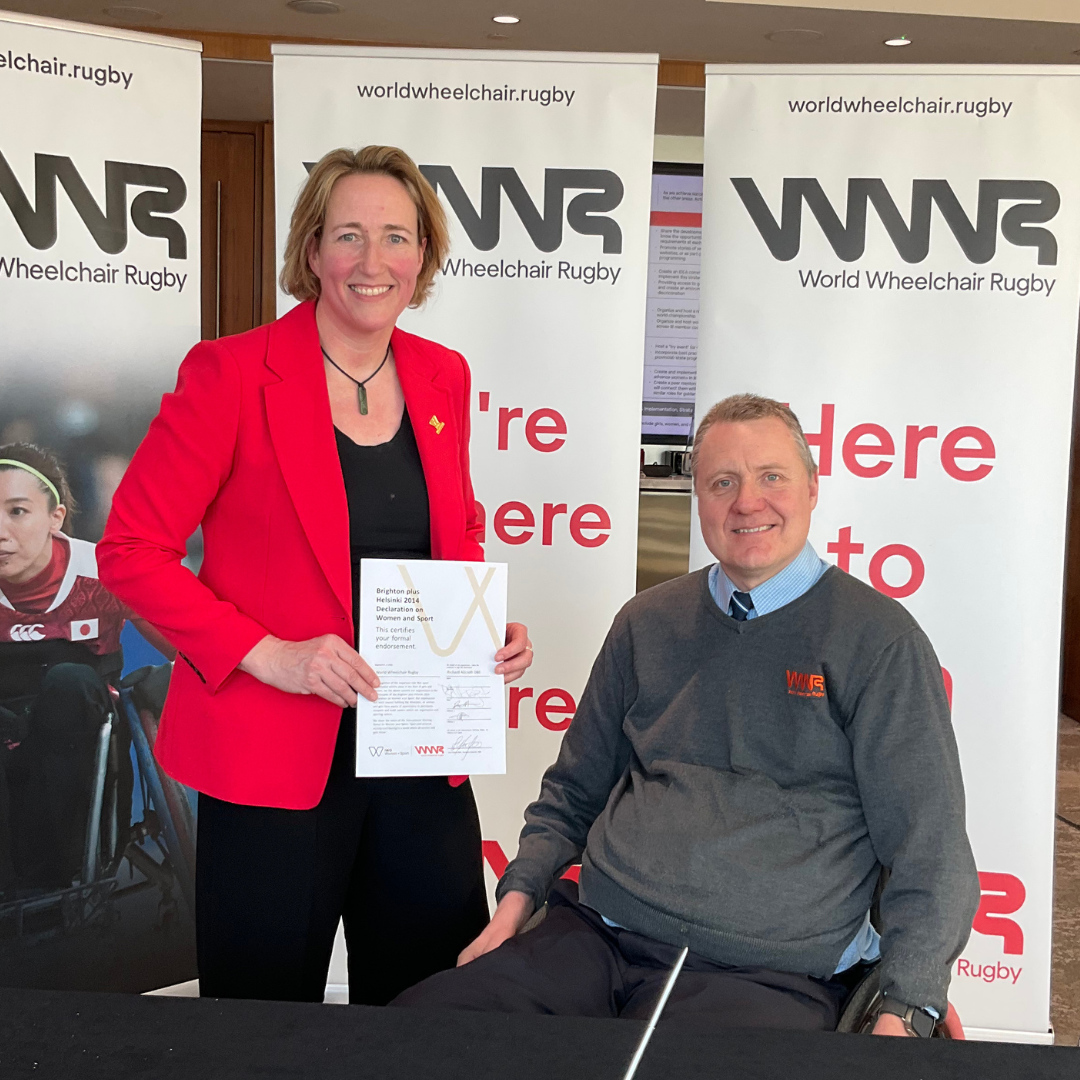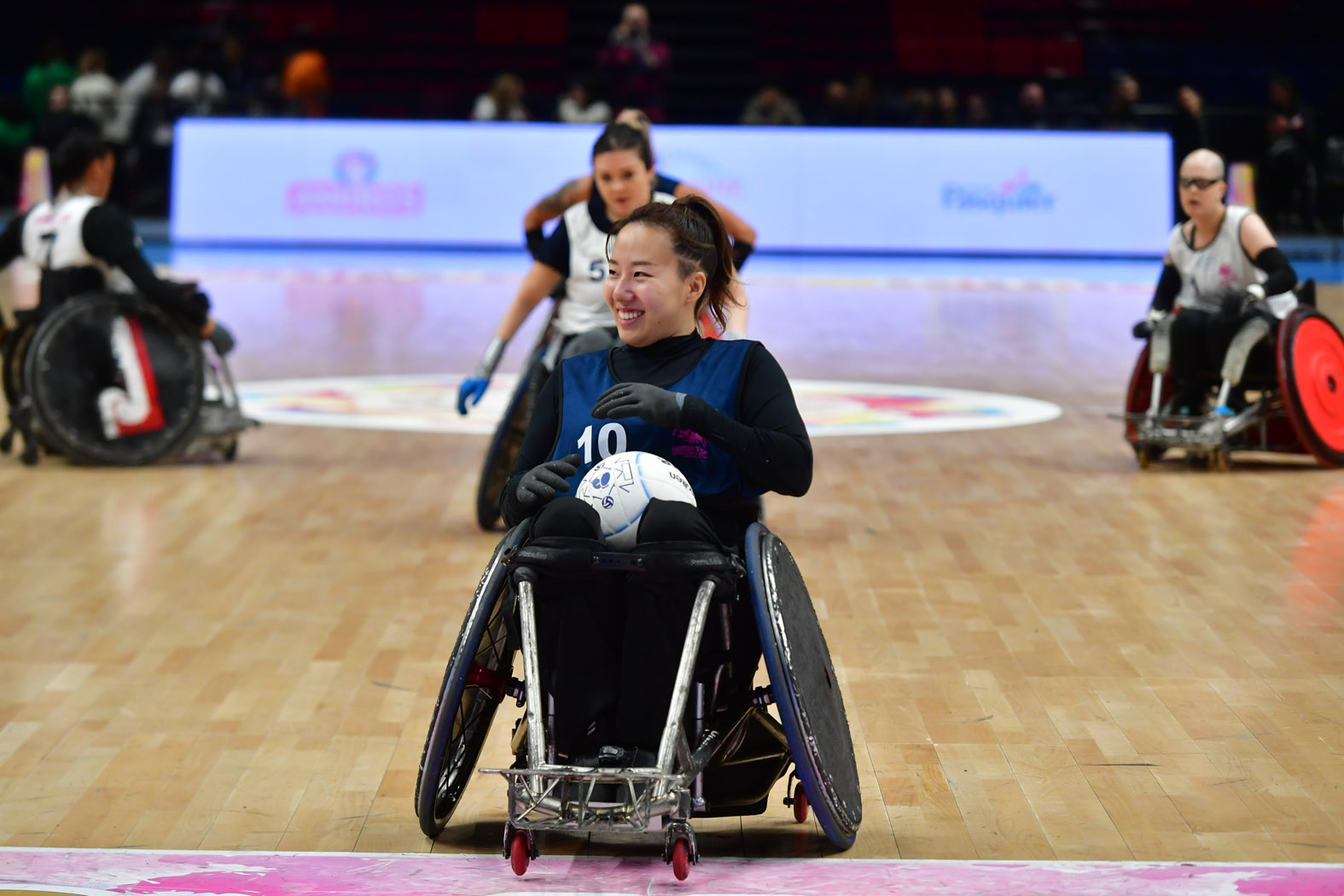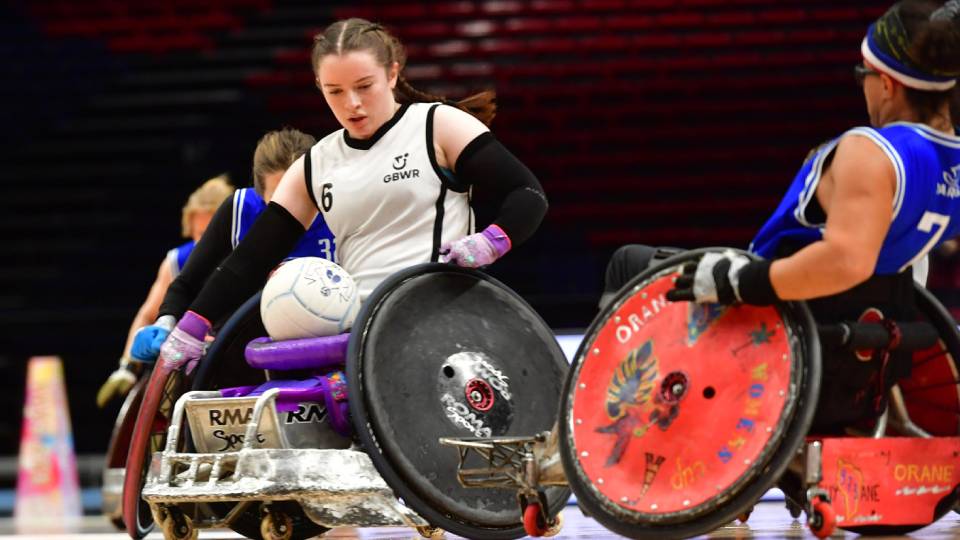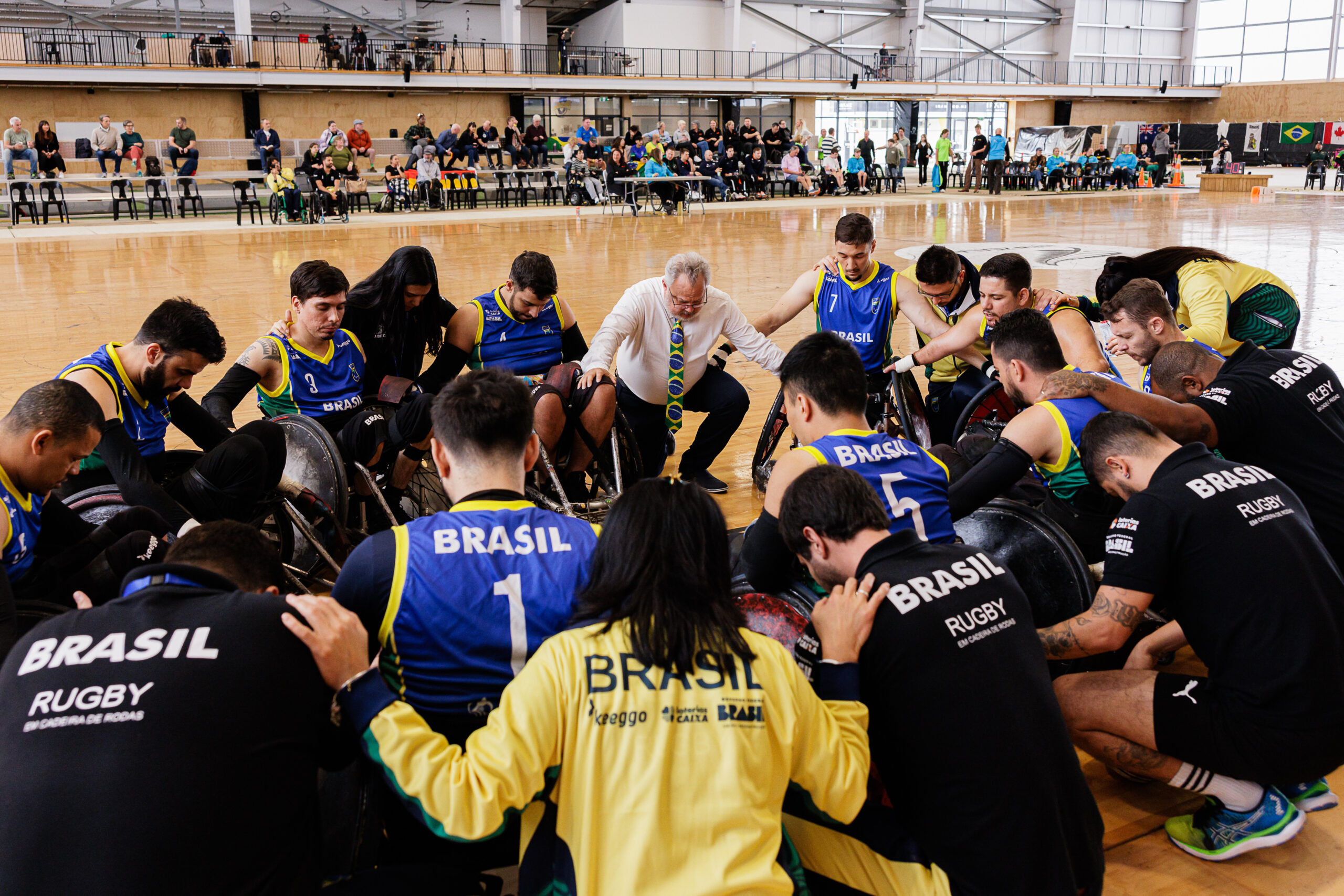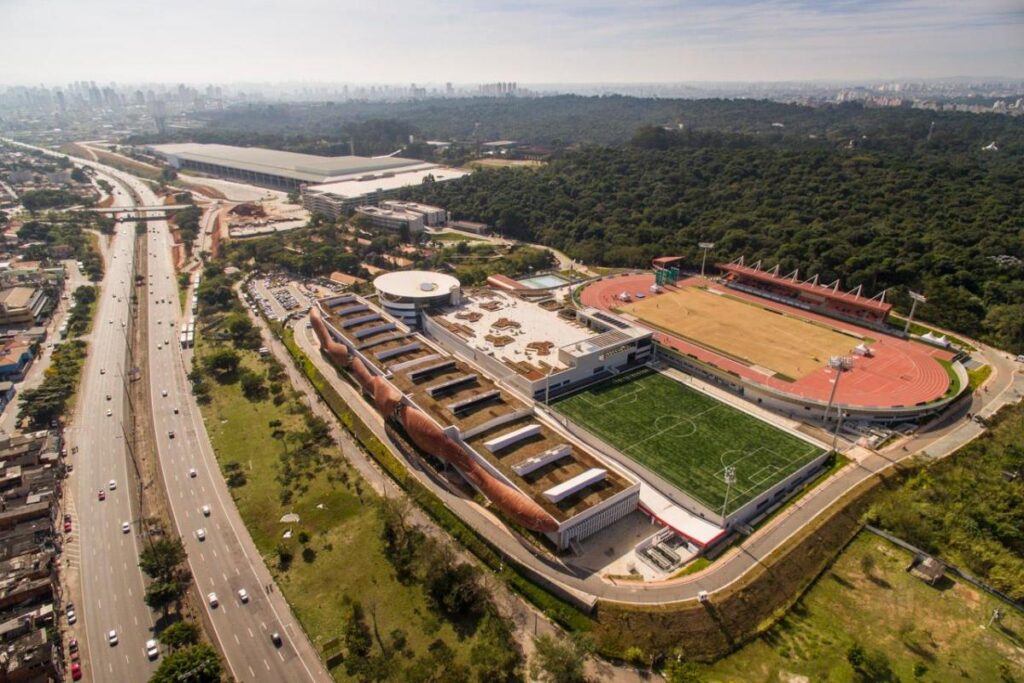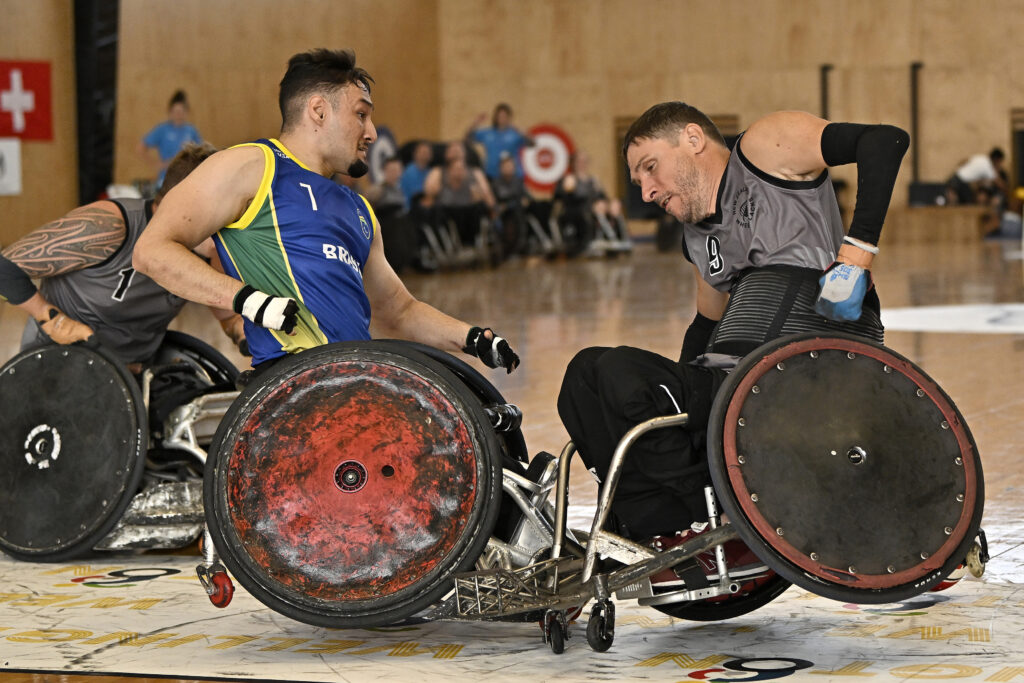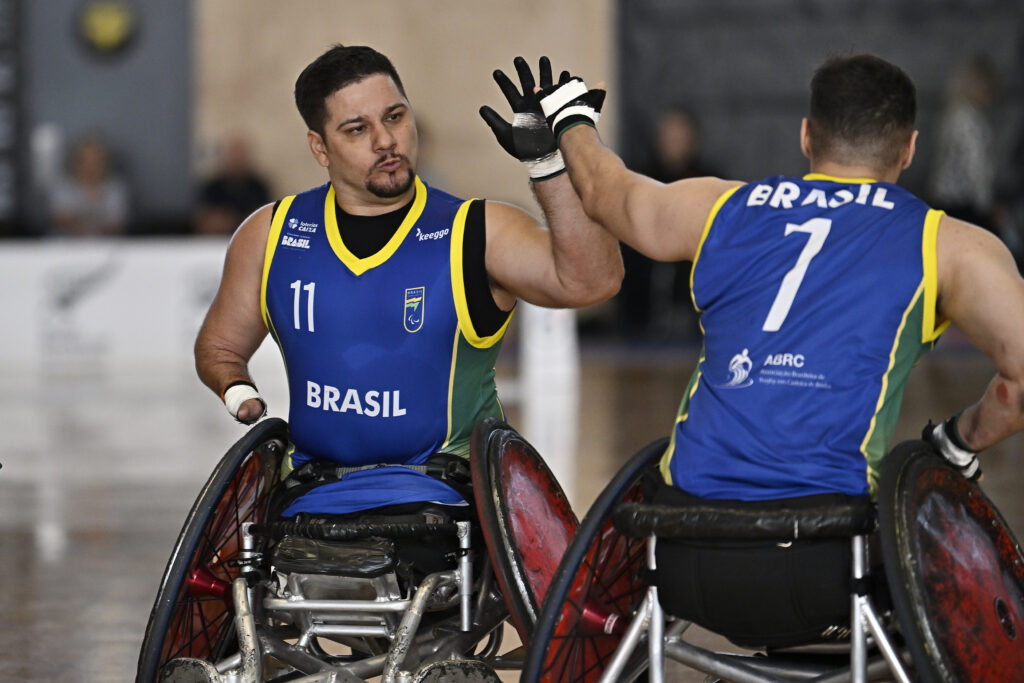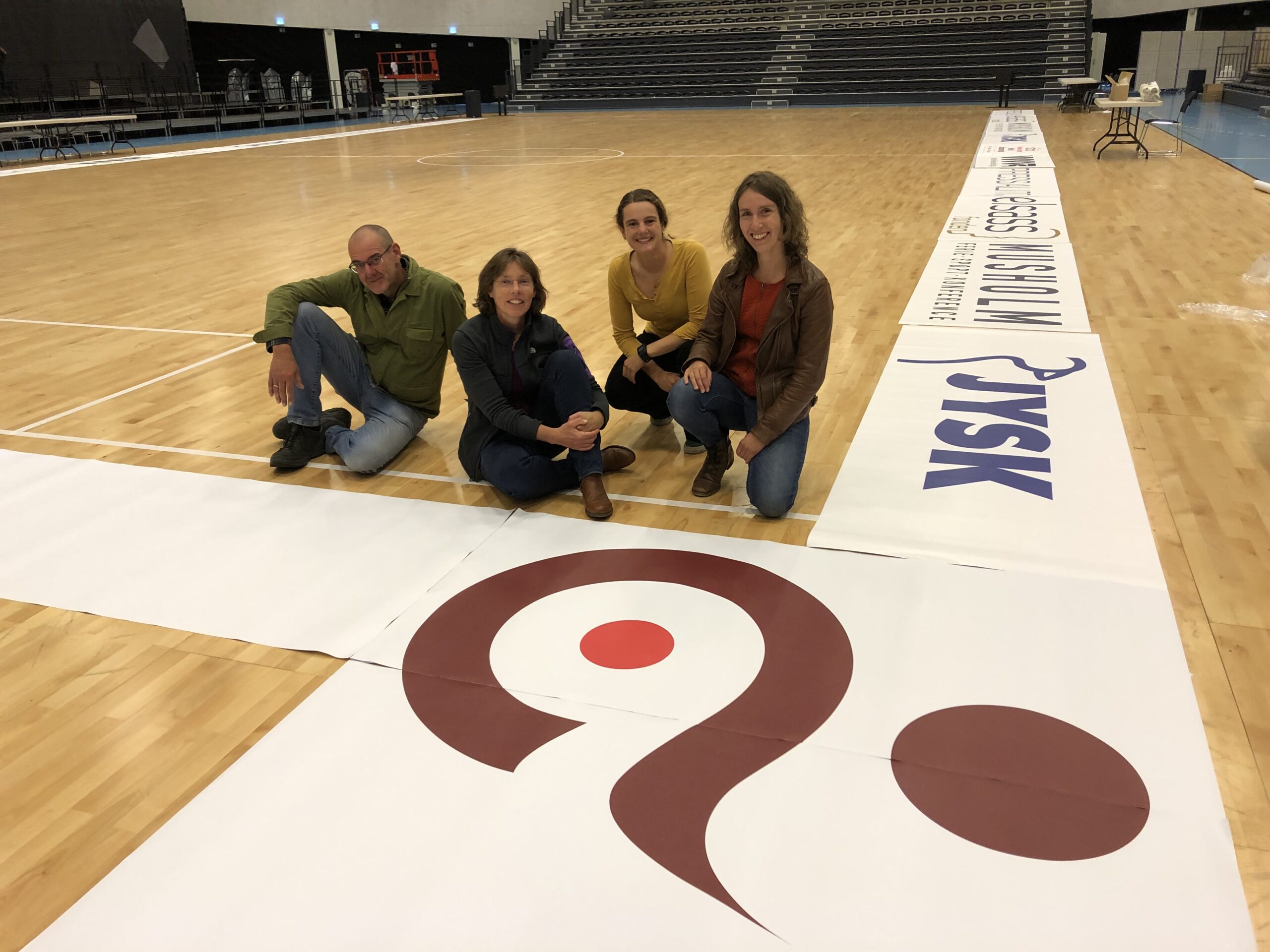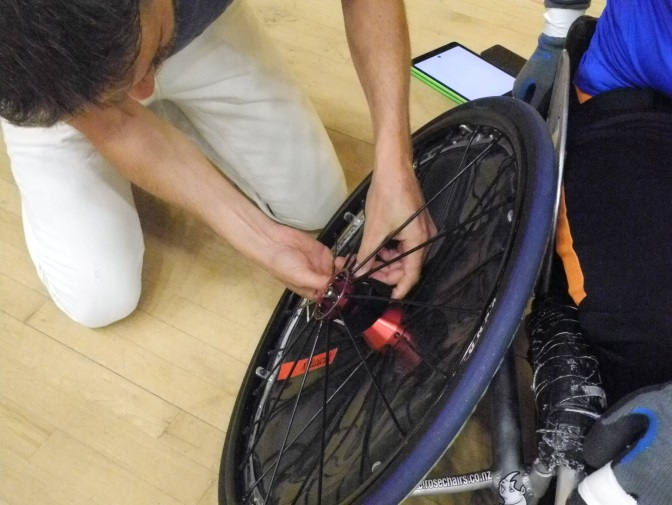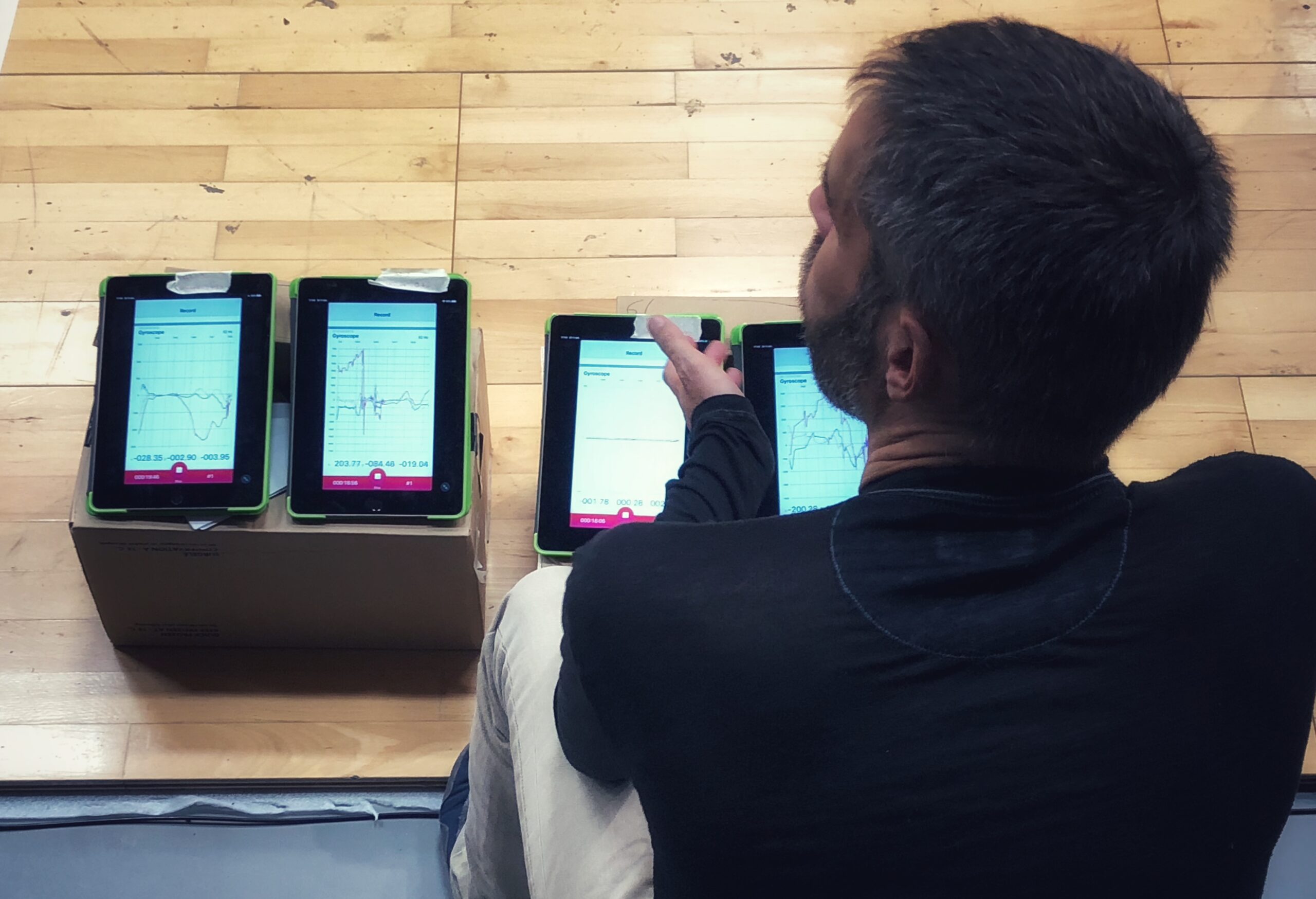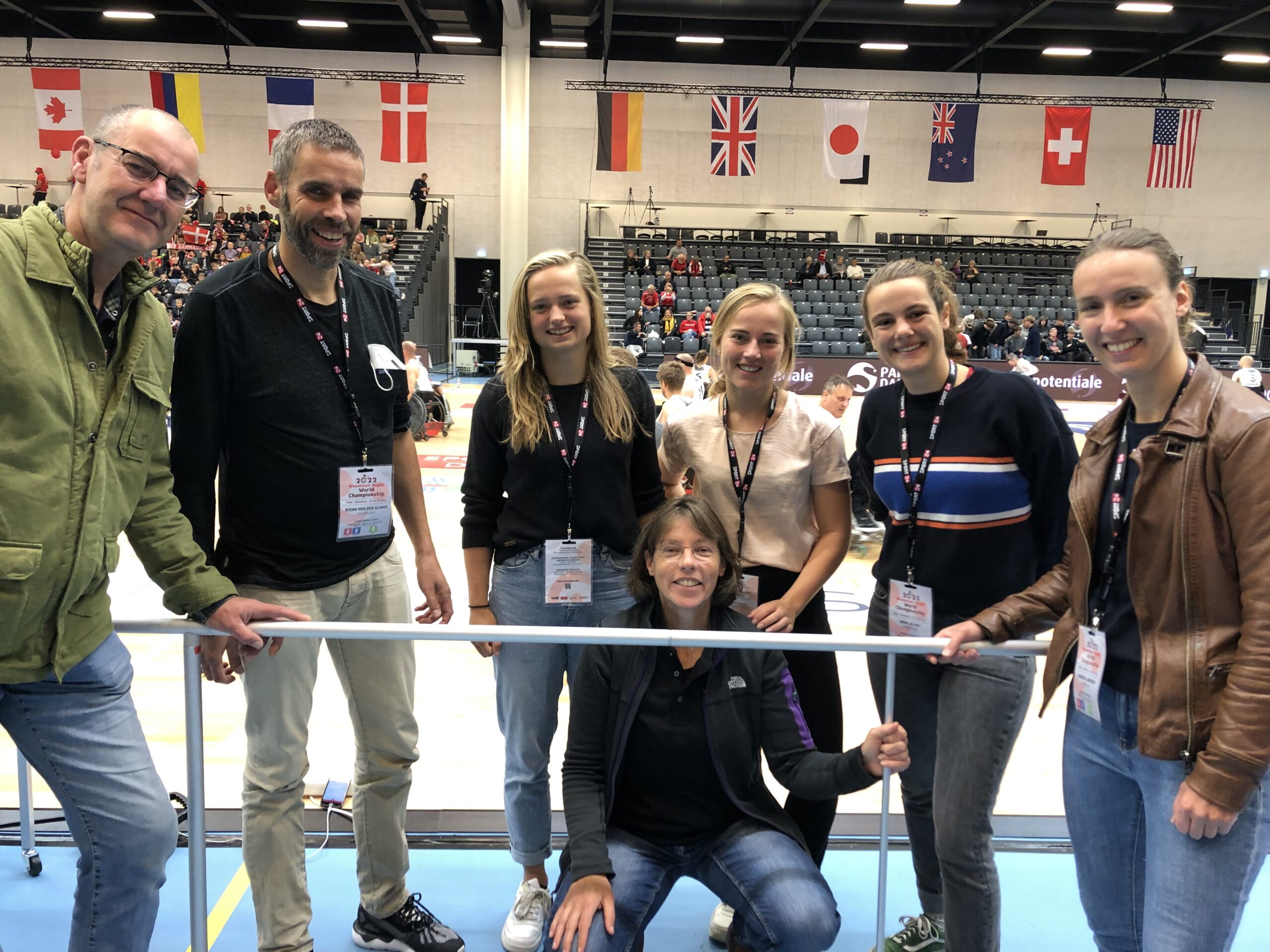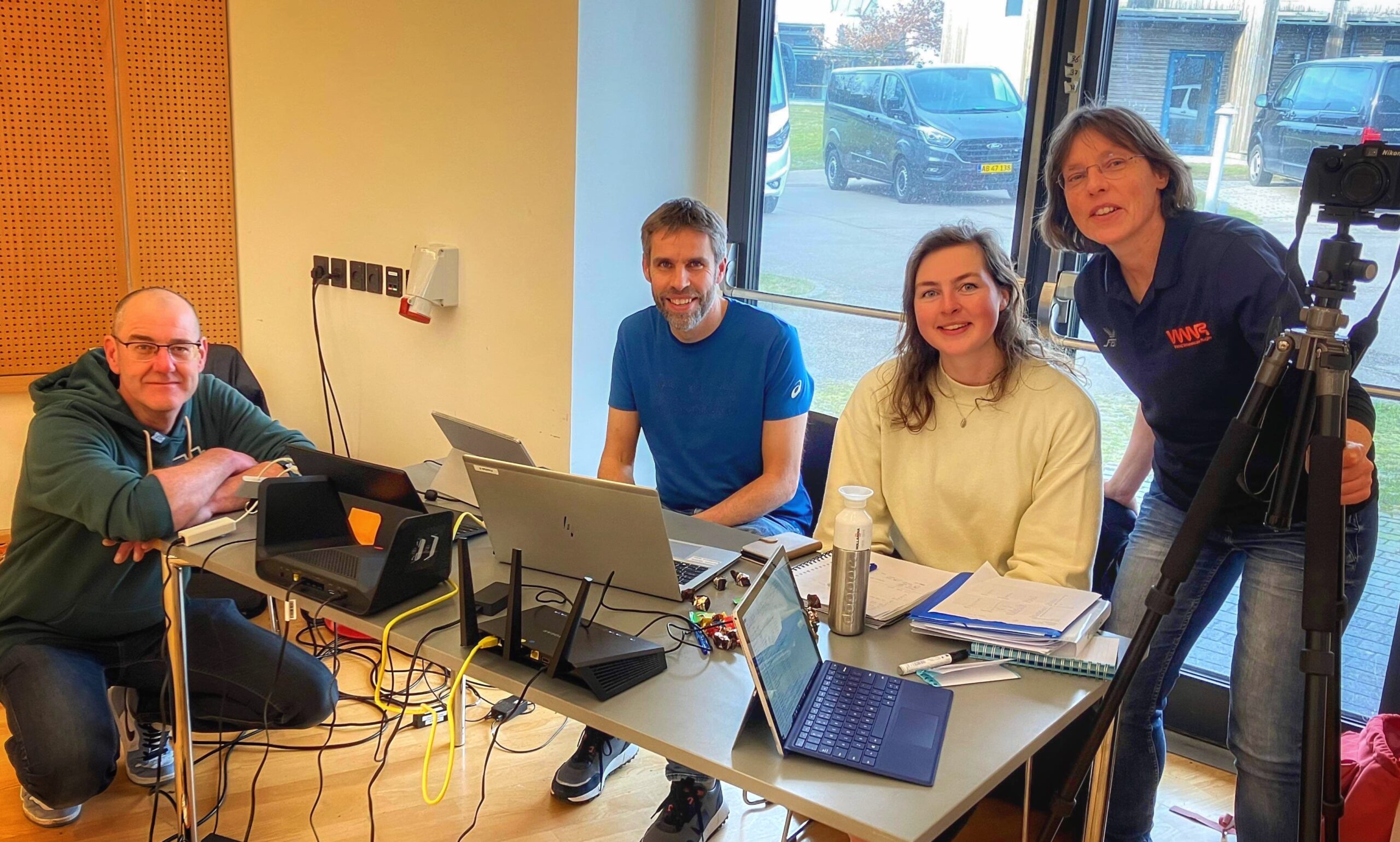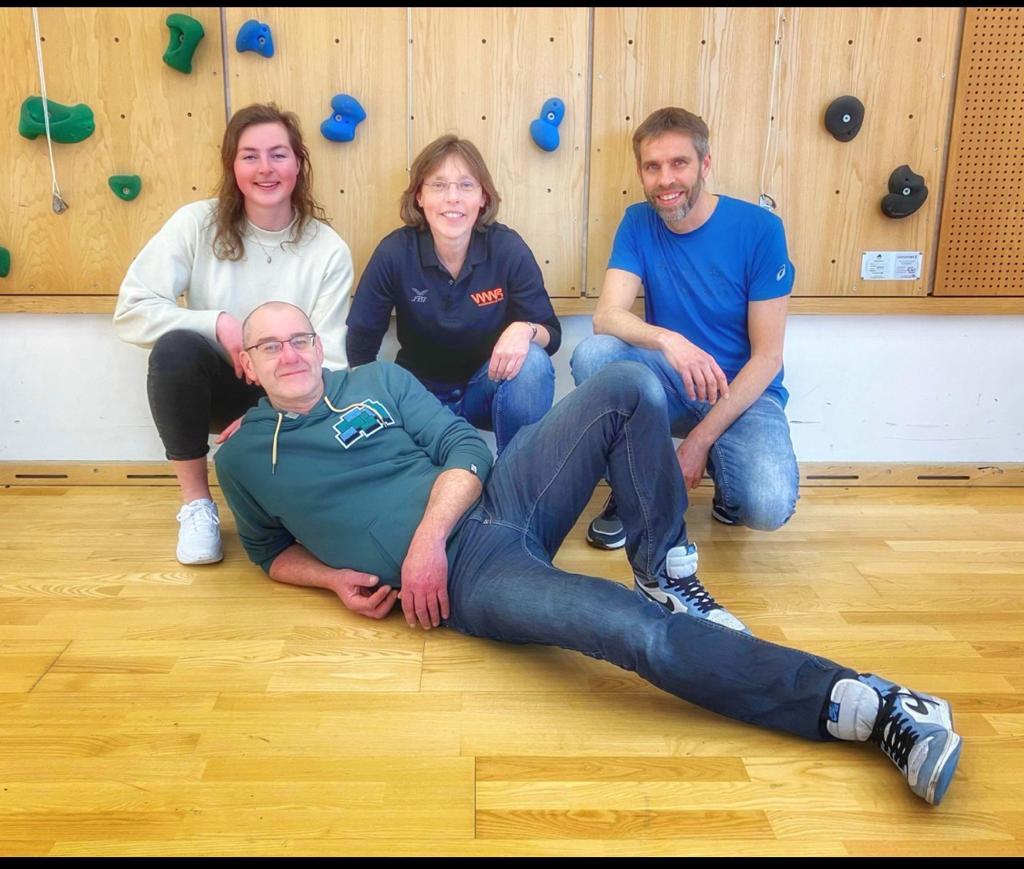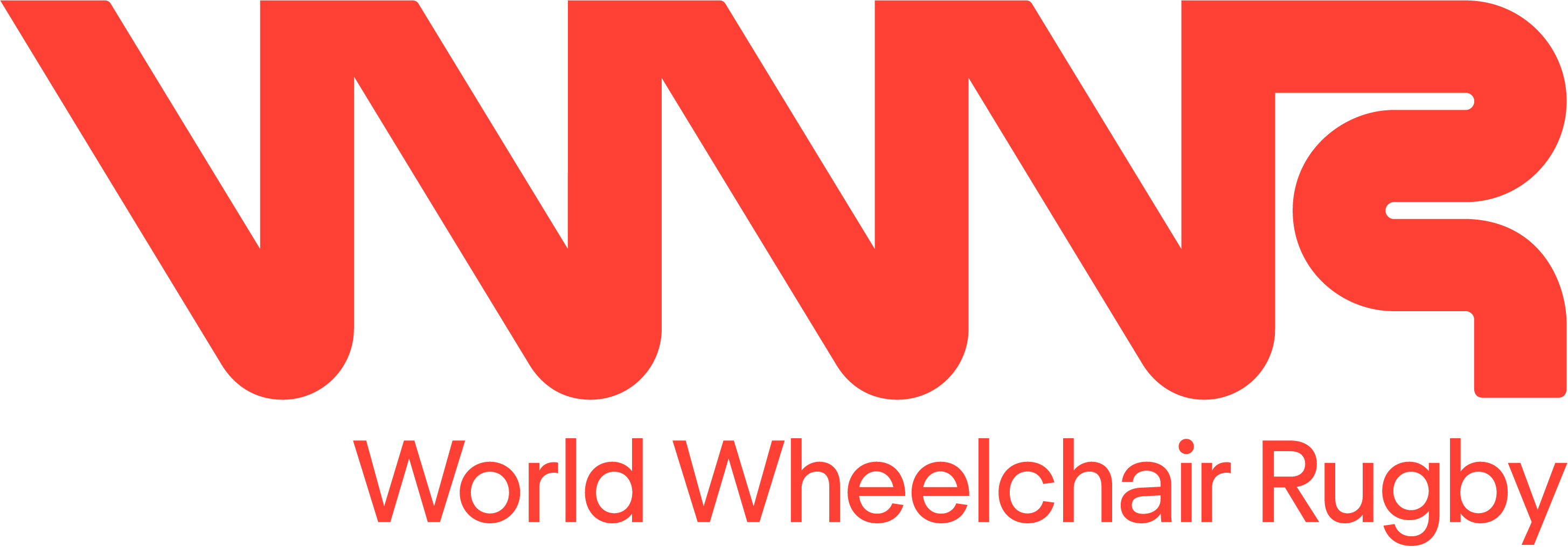Photo credit: Sara Pardoe
Lisa O’Keefe MBE (Secretary General, International Working Group on Women and Sport) and Richard Allcroft OBE (WWR President) and the signed declaration
World Wheelchair Rugby (WWR) is thrilled to announce a historic step toward gender equity in wheelchair rugby with the signing of the International Working Group (IWG) on Women and Sport’s Brighton Plus Helsinki 2014 Declaration on March 4. This landmark commitment is accompanied by the launch of the Wheelchair Rugby Gender Equity Playbook—a game-changing strategy designed to drive female participation and leadership at every level of the sport.
The Brighton Plus Helsinki 2014 Declaration is a global movement championing equity, inclusion, and opportunity for women in sport. Recognizing the need for greater female representation, WWR’s 2022 strategic review set the foundation for this initiative.
WWR President, Richard Allcroft OBE, emphasized the importance of action:
“We recognised as an organisation that we were not doing enough to include female athletes within our sport. I’ve always been proud that our sport is open to all genders, but it was clear that if we didn’t create change, then we were never going to see enough female athletes taking up the game.
As our strategies were taking shape, this needed to expand to encompass the inclusion of women in leadership positions as well. The signing of the Brighton Plus Helsinki Declaration and the launch of our Playbooks is a statement that we are not just open to change but committed to making changes.”
Kathy Newman, Director of Development and Competitions and Chair of the WWR Women’s Task Group, reinforced the transformative nature of this step:
“The Brighton Plus Helsinki 2014 Declaration isn’t just a pledge—it’s a game-changer. When we formed our Women in Sport Task Team, we saw the barriers holding women back. This declaration is breaking them down, driving real change worldwide. When we invest in women in sport, we don’t just level the playing field—we transform the game for future generations and we change lives.
A future where women have equal opportunities in sport isn’t just possible—it’s happening. The Brighton Plus Helsinki Declaration is proof that when we commit to change, we create a legacy of inclusion and empowerment.”
WWR is committed to turning words into action with the Wheelchair Rugby Gender Equity Playbook, a strategic framework aimed at:
- Recruiting more female athletes through targeted outreach and engagement.
- Developing leadership pathways for women in coaching, officiating, and governance.
- Ensuring fair funding and resource allocation to support female athletes.
- Creating a culture of inclusion through policy and mindset shifts across the sport.
Within the Playbook is a practical, community-focused guide designed to help local clubs create and deliver inclusive programming for women+. As well as a strategic framework for national federations and governing bodies. It provides guidance on policy development, funding applications, and the creation of targeted communications strategies to drive lasting change at a systemic level.
To complement these resources, WWR has also released a one-page summary, offering a concise overview of both playbooks and their key objectives.
This is more than a promise—it’s a bold, actionable plan to create lasting change. As nations begin implementing the playbook, WWR calls on the global wheelchair rugby community to step up and make equity a reality.
Lisa O’Keefe MBE, Secretary General of IWG, reflected after the signing:
“It’s a great pleasure to welcome World Wheelchair Rugby as the latest signatory of the IWG’s Declaration. IWG was involved in the consultation stage of the playbook and so I saw first-hand their commitment to making systemic change within the Federation in order to make the sport accessible to women and girls at every level.
WWR underwent a thorough process to produce their Playbooks, and I’m delighted we can share their brilliant work with the IWG network.”
For more information on the Brighton Plus Helsinki Declaration and the Wheelchair Rugby Gender Equity Playbook, visit https://worldwheelchair.rugby/ or follow us on social media @ww_rugby.
The World Wheelchair Rugby Gender Equity Playbooks can be found here on the Women+ page of the WWR Website: https://worldwheelchair.rugby/women-resources/
The video from the signing can be found here: https://youtu.be/I-V66XCUom8
